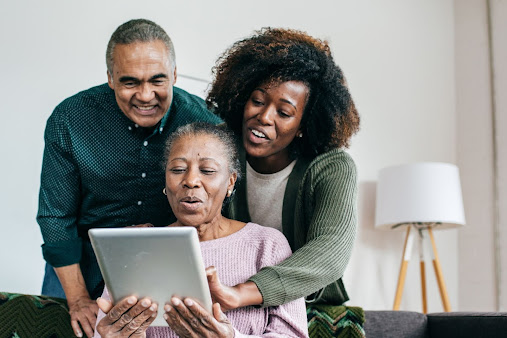 Moving can be an overwhelming experience for anyone, especially seniors who are downsizing. They may have to make some hard decisions about the belongings coming with them. Before moving day, it will be extremely helpful to obtain the floor plan with the correct dimensions of the apartment your loved one is moving into.
Moving can be an overwhelming experience for anyone, especially seniors who are downsizing. They may have to make some hard decisions about the belongings coming with them. Before moving day, it will be extremely helpful to obtain the floor plan with the correct dimensions of the apartment your loved one is moving into.
Having accurate dimensions on hand will make the packing process that much easier because it will allow you to help mom or dad make smarter decisions about what belongings can go along with them. If your loved one can bring their favorite belongings into the new living space (like their comfy recliner chair), then the assisted living community will start to feel more like home.
If you’re still not sure how to start, check out the packing checklist below the team at United Methodist Communities at Collingswood put together.
Furniture and other home essentials
Their new living space will most likely be smaller than what they’re used to. Make sure to identify and narrow down which home furnishings are the most important to hang onto.
- Sofa, chairs, and end tables (include extra folding chairs for visitors)
- Dishes, bowls, glasses, and utensils
- Towels and bedding- comforter, throw pillows, mom’s homemade quilt…
- Important Keepsakes and knick-knacks
- Framed photos of family and pieces of artwork
Living necessities & toiletries
Check the assisted living community first to see what necessities may already be available to your loved one.
- Appliances (if not provided) – mini-fridge, coffeemaker, microwave, TV, and radio
- Clothes hangers and closet organizers
- Assistive devices – eyeglasses, hearing aids, canes/walkers
- Cleaning wipes for quick clean-ups
- Favorite books and games
- List of prescriptions
- Toothbrush, toothpaste, razor or buzzer
- Shampoo, conditioner, soap and lotion
- Make-up
Clothes
Take the climate into consideration when helping your loved one pack clothing staples.
- Clothing – sweats, tracksuits, jeans, and sweaters
- Pajamas and robe
- Socks, slippers and comfortable shoes
- Jackets and warm coats
- Formal outfits for special occasions
More packing tips:
- Figure out a solid packing plan with your family as soon as possible. Moving always takes longer than expected.
- Start sorting through the smallest room in your loved one’s house. The smallest room will be the easiest to tackle.
- When sorting through belongings, make “yes” or “no” piles only!
- Do not pack alone! All family members can take turns and alleviate stress by sharing this responsibility.
- Use this time as a bonding experience. Mom or dad will have the chance to reminisce over the memories associated with each special item and share these stories with the entire family.
Assisted Living in Collingswood, New Jersey
Once mom or dad is settled in their new place, help them create a cozy home feeling by placing items where they’re used to seeing them. For example, set up the living room with the same sofa, chairs and framed photos that were in their previous home. It’s also important to remember that the staff is also there to help your loved one settle in.
Here at Collingswood, our highly-trained associates are available 24/7 to help residents transition to community living more positively. Whether they need daily reminders to join group activities or someone to just listen to their downsizing struggles, the associates at UMC are here to support and encourage your loved one to live life more abundantly.
For more information about assisted living services at Collingswood, or any of our other senior communities across New Jersey, please contact United Methodist Communities and book your visit today.
Originally posted: https://collingswood.umcommunities.org/collingswood/assisted-living-checklist-what-to-pack/


 Senior loneliness is a very real and serious issue. Especially over the winter months and during the COVID-19 pandemic when isolating at home is safer than traveling, seeing loved ones, or even going to the grocery store. Here is some helpful advice from the team at our independent living community, Bristol Glen, on how to manage senior loneliness and why it truly matters to us.
Senior loneliness is a very real and serious issue. Especially over the winter months and during the COVID-19 pandemic when isolating at home is safer than traveling, seeing loved ones, or even going to the grocery store. Here is some helpful advice from the team at our independent living community, Bristol Glen, on how to manage senior loneliness and why it truly matters to us.


